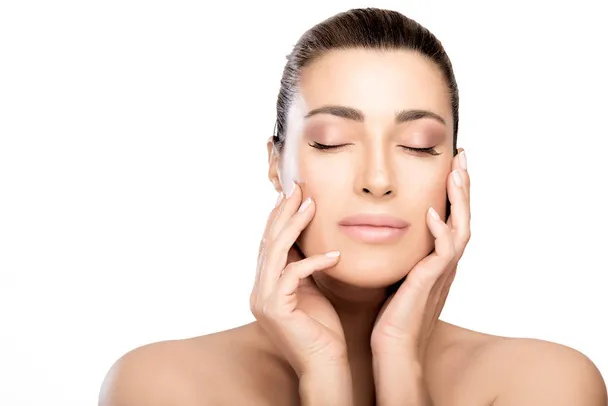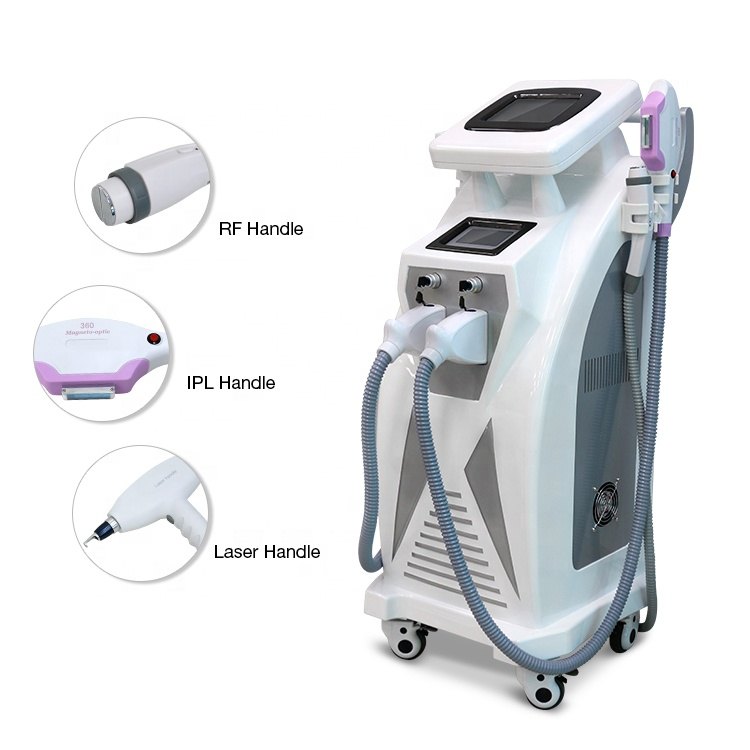Can You Use Iodine To Treat Acne? Here’s What We Know
Acne is a common skin condition that affects millions of people worldwide, leading many individuals to seek out various treatments to alleviate symptoms and achieve clearer skin. In recent years, there has been speculation about the use of iodine as a potential treatment for acne. Iodine, a chemical element essential for thyroid function and overall health, has been suggested to have antibacterial properties that may help combat acne-causing bacteria. However, the use of iodine for acne treatment is not without controversy. In this article, we’ll explore the potential benefits and risks of using iodine to treat acne and provide evidence-based insights into its effectiveness.
Understanding Acne:
Acne is a multifactorial skin condition that arises from a combination of factors, including hormonal fluctuations, excess oil production, bacterial overgrowth, inflammation, and genetic predisposition. Understanding these underlying causes is crucial for effective acne management. Here’s a closer look at the key factors contributing to acne development:
- Excess Oil Production (Sebum): The skin’s sebaceous glands produce an oily substance called sebum, which helps lubricate the skin and hair. However, excess sebum production can lead to the clogging of hair follicles, creating an ideal environment for acne-causing bacteria to thrive. Hormonal fluctuations, particularly during puberty, can stimulate the sebaceous glands to produce more oil, increasing the risk of acne breakouts.
- Dead Skin Cells: The outer layer of the skin continuously sheds dead skin cells, which are normally shed from the skin’s surface. However, when dead skin cells mix with excess sebum, they can become trapped in the hair follicles, forming a plug or comedo. This plug can lead to the formation of whiteheads (closed comedones) or blackheads (open comedones), which are common types of acne lesions.
- Bacterial Overgrowth (Propionibacterium acnes): Propionibacterium acnes (P. acnes) is a type of bacteria that naturally resides on the skin’s surface. However, when hair follicles become clogged with oil and dead skin cells, P. acnes can multiply rapidly, leading to inflammation and the formation of acne lesions. This bacterial overgrowth contributes to the inflammatory response characteristic of acne.
- Inflammation: Inflammatory mediators released by the immune system in response to bacterial overgrowth and clogged pores contribute to the redness, swelling, and tenderness associated with acne lesions. Inflammation plays a significant role in the progression of acne and can exacerbate existing lesions while promoting the formation of new ones.
- Hormonal Fluctuations: Hormonal changes, particularly during puberty, menstruation, pregnancy, and menopause, can influence sebum production and contribute to acne development. Androgens, such as testosterone, stimulate the sebaceous glands to produce more oil, leading to increased acne breakouts, particularly in areas rich in sebaceous glands, such as the face, chest, and back.
- Genetic Predisposition: Genetics also play a role in acne development, with family history serving as a significant risk factor. Individuals with a family history of acne are more likely to develop the condition themselves, suggesting a genetic predisposition to acne susceptibility and severity.
The Role of Iodine:
Iodine, a vital chemical element, is indispensable for various physiological functions, primarily playing a pivotal role in thyroid health and hormone regulation. Within the body, iodine is utilized in the synthesis of thyroid hormones, such as thyroxine (T4) and triiodothyronine (T3), which are crucial for maintaining metabolic rate, regulating growth and development, and supporting overall energy balance. A deficiency in iodine can lead to thyroid disorders, including hypothyroidism or goiter, underscoring the essential nature of iodine for maintaining optimal thyroid function and overall health.
Beyond its role in thyroid health, iodine has garnered attention for its potential antibacterial properties. Some studies suggest that iodine may possess antimicrobial effects, making it a candidate for combating bacteria, including those implicated in acne formation, such as Propionibacterium acnes (P. acnes). By targeting acne-causing bacteria on the skin’s surface, iodine may help mitigate inflammation and reduce the incidence of acne breakouts, offering a potential adjunctive approach to acne management.
However, while iodine’s antibacterial properties hold promise for acne treatment, its application in skincare warrants caution. Topical iodine preparations, when applied in high concentrations or without proper dilution, can cause skin irritation, allergic reactions, and even chemical burns. Moreover, excessive iodine exposure, whether through topical application or dietary sources, may disrupt thyroid function and exacerbate underlying thyroid disorders.
Therefore, while iodine’s potential antibacterial effects may offer a novel avenue for acne management, further research is needed to elucidate its efficacy and safety profile in skincare applications. Additionally, individuals considering the use of iodine for acne treatment should exercise caution, consulting with healthcare professionals and dermatologists to ensure proper usage and minimize the risk of adverse effects. With careful consideration and guidance, iodine may emerge as a valuable adjunctive therapy in the multifaceted approach to acne management.
Theoretical Benefits of Iodine for Acne:
Proponents advocating for the use of iodine in acne treatment propose several theoretical benefits that make it an intriguing option for alleviating acne symptoms. Primarily, applying iodine directly to acne lesions is believed to exert antimicrobial effects, effectively targeting and eliminating acne-causing bacteria present on the skin’s surface. By reducing bacterial colonization, iodine may help mitigate inflammation, a key factor in the development and progression of acne. This anti-inflammatory action can lead to a reduction in redness, swelling, and discomfort associated with acne lesions, ultimately contributing to clearer and healthier-looking skin.
Moreover, iodine is thought to possess drying properties, akin to well-known topical treatments such as benzoyl peroxide or salicylic acid. By drying out acne lesions, iodine has the potential to expedite the healing process, facilitating the removal of dead skin cells and promoting skin regeneration. This may result in faster resolution of acne symptoms, including the disappearance of pimples, blackheads, and whiteheads. Additionally, the drying effect of iodine could help prevent the spread of acne lesions and minimize scarring, leading to improved overall skin appearance.
Furthermore, proponents highlight the accessibility and affordability of iodine as an acne treatment option. Iodine solutions or ointments are readily available over-the-counter, making them accessible to individuals seeking alternative acne remedies. Compared to some prescription acne medications, iodine is relatively inexpensive, offering a cost-effective option for those with limited financial resources. This accessibility ensures that individuals have greater flexibility in managing their acne symptoms, allowing them to explore alternative treatment options that suit their preferences and budget.
While these theoretical benefits make iodine an appealing option for acne treatment, it’s essential to approach its use cautiously. Topical application of iodine can potentially cause skin irritation, allergic reactions, and chemical burns, particularly when applied in high concentrations or without proper dilution. Furthermore, excessive iodine exposure can disrupt thyroid function and lead to adverse health effects, especially in individuals with underlying thyroid disorders. Therefore, individuals considering iodine as an acne treatment should consult with healthcare professionals or dermatologists to ensure safe and appropriate usage, taking into account potential risks and contraindications. With careful consideration and guidance, iodine may serve as a valuable adjunctive therapy for managing acne symptoms effectively and achieving clearer, healthier skin.
Potential Risks and Concerns: While iodine holds promise as a potential acne treatment, it’s crucial to acknowledge the significant risks and concerns associated with its use. Here’s a closer look at the potential drawbacks of utilizing iodine for acne treatment:
- Skin Irritation and Allergic Reactions: Topical application of iodine can cause skin irritation, redness, and itching, particularly when applied in high concentrations or on sensitive skin. Some individuals may also experience allergic reactions to iodine, leading to hives, swelling, or blistering of the skin. These adverse reactions can exacerbate existing acne symptoms and undermine the intended therapeutic benefits of iodine.
- Chemical Burns: Iodine is a potent chemical that can cause chemical burns when applied topically in excessive amounts or without proper dilution. Chemical burns can result in pain, blistering, and skin damage, leading to prolonged healing and potential scarring. Individuals with sensitive or compromised skin are particularly susceptible to chemical burns from iodine exposure.
- Thyroid Dysfunction: Excessive iodine intake, whether through topical application or dietary sources, can disrupt thyroid function and lead to thyroid disorders. The thyroid gland relies on iodine to produce thyroid hormones, and excessive iodine exposure can disrupt hormone synthesis and regulation. Individuals with pre-existing thyroid conditions, such as hypothyroidism or hyperthyroidism, or those with iodine sensitivity are at increased risk of thyroid dysfunction from iodine exposure.
- Risk of Iodine Toxicity: Ingesting or absorbing excessive amounts of iodine can lead to iodine toxicity, a condition characterized by symptoms such as nausea, vomiting, abdominal pain, and thyroid dysfunction. While topical iodine application is less likely to cause iodine toxicity compared to oral ingestion, individuals using iodine-containing products should be mindful of potential systemic absorption and monitor for signs of toxicity.
- Potential Interactions with Medications: Iodine-containing products may interact with certain medications, particularly those used to treat thyroid disorders or iodine-sensitive conditions. Concurrent use of iodine with thyroid medications or iodine contrast agents may alter thyroid function and necessitate adjustments in medication dosage. Individuals taking medications should consult with healthcare professionals before using iodine-containing products to avoid potential interactions and adverse effects.
Limited Scientific Evidence:
Despite anecdotal reports and preliminary studies suggesting potential benefits of iodine for acne treatment, it’s essential to acknowledge the limited and inconclusive nature of the scientific evidence supporting its effectiveness. While some individuals may report positive outcomes with iodine use, the overall body of research on iodine as a topical treatment for acne remains sparse and lacks robust clinical evidence.
The existing studies investigating the efficacy of iodine for acne treatment are often small in scale, with limited sample sizes and methodological shortcomings. Additionally, many of these studies rely on subjective assessments or patient-reported outcomes, which may introduce bias and limit the reliability of the findings.
Furthermore, the few clinical trials examining the use of iodine for acne treatment have yielded mixed results, with some studies reporting modest improvements in acne symptoms while others found no significant difference compared to placebo or standard treatments. The heterogeneity in study designs, iodine formulations, and outcome measures further complicates the interpretation of findings and precludes definitive conclusions about iodine’s efficacy in acne management.
To establish the safety and efficacy of iodine as a topical treatment for acne, more extensive and well-designed clinical trials are needed. These studies should incorporate rigorous methodologies, including randomized controlled trials with adequate sample sizes, standardized outcome measures, and long-term follow-up assessments.
Moreover, future research should explore the optimal formulation, concentration, and application method of iodine for acne treatment to maximize its potential benefits while minimizing the risk of adverse effects. Additionally, mechanistic studies are warranted to elucidate the underlying mechanisms of action by which iodine exerts its effects on acne pathogenesis.
While iodine has been suggested as a potential treatment for acne due to its antibacterial properties, the risks and uncertainties outweigh the potential benefits. The use of iodine for acne treatment can lead to skin irritation, allergic reactions, and disruptions in thyroid function, posing significant health risks. Instead, individuals seeking relief from acne symptoms should opt for safer and more evidence-based treatments, such as over-the-counter acne products containing benzoyl peroxide, salicylic acid, or sulfur. Consulting a dermatologist or healthcare professional is recommended for personalized acne treatment recommendations and guidance.










